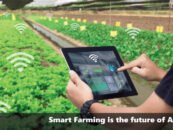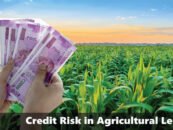Modern day consumers are more aware of food products and put easily accessible technologies to use to take an informed purchase decision. This buying behaviour is more prevalent for the products which have a direct impact on consumer’s health. From taking out smartphones in the grocery store to doing a quick Google search before an online purchase, customers want easy access to information regarding health benefits, ingredients, dietary claims and more.
The concern of a modern consumer is not just confined to their own health and safety. They are visibly concerned about the impact of manufacturing and distribution of the food products on the environment and society. This increased social and environmental concern is not just a characteristic of foodies or wealthy suburbanites. According to a Nielsen Global Corporate Sustainability Report, consumers in all regions and across all income levels are willing to pay higher prices for products from companies committed to a positive social and environmental impact.
A report from a research conducted by the Food Marketing Institute (FMI) revealed that shoppers are increasingly demanding transparency and a closer connection to their food. Over 75% of the respondents were willing to switch to a brand that provides more in-depth product information, beyond what’s provided on the physical label
Food Products
Food traceability market will be worth $14 billion by 2019 and this trend has influenced the way food products are being marketed. There has been an unprecedented focus on the manufacturer’s ingredients, processes and backstory instead of just advertisement.
In commodity based products like food products, gaining competitive advantage can be an uphill task without price war. Companies which can gain consumer trust through transparency can go a long way in terms of profitability. Start-ups are looking to leverage the significant opportunity that lies in traceability and transparency.
There are some digital identity companies that are integrating food production and logistics systems into a block chain based solution. This allows the consumers to access all the relevant information about the product. It also gives consumers an opportunity to engage and interact with the brand ecosystem at each level of the value chain. This transparent and reliable information on the origin, journey and quality of food product could be a great point of distinction for a brand.
FocusAgritech’s Outlook: Data has huge significance in agriculture, from on-farm recorded information about breeding, animal welfare and sustainable production, to how the food gets to an end consumer’s plate. Given the advent of technologies like block chain, IoT and Digital agriculture, it’s easier to collect and disseminate relevant data to the consumer through a product story and build brand trust and authenticity in a product.
Companies to watch: Ripe.io, Fresh Supply Co, Etherisc, Arbol
Recent Articles
Regenerative Farming is the Path to Sustainable Agriculture






